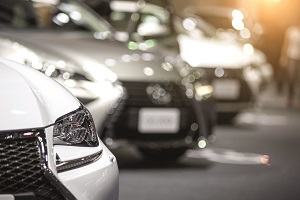The government has set out how vehicles fitted with Automated Lane Keeping System (ALKS) technology could legally be defined as self-driving. This depends on if they receive GB type approval and there is no evidence which challenges the vehicle’s ability to self-drive. Whilst this system is only designed for use on a motorway in slow traffic, it will be the first time that drivers will be allowed to fully hand over control of a vehicle.
According to the Department for Transport, human error contributes to over 85% of accidents. It is hoped that this technology will reduce human error and as a result, improve road safety. The best case scenario is that the shift to automation will decrease the number of accidents dramatically, reducing risk all round, although it will clearly take some time for all non-autonomous vehicles to be replaced.
Insurance remains one of the more complex issues as the question remains as to whether a driver who has no control over the vehicle will need insurance at all. It appearing reasonable to argue that all the liability should transfer to the manufacturer if, for example, an accident is caused by failures in the design of the vehicle.
Whilst some manufacturers have said that they will take full liability for any accidents caused by their autonomous vehicles. As things stand, the current legal position is set out in the 2018 Automated and Electric Vehicles Act.
The Act prescribes compulsory insurance for autonomous vehicles as follows:
- following an accident, insurers of an automated vehicle will be liable for damage caused to the insured or any other person when the vehicle was driving itself;
- where the vehicle was driving itself and was not insured, the owner will be liable for the damage caused by the accident;
- the insurer or owner of the automated vehicle will not be liable to the person in charge of that vehicle where the accident caused was wholly due to the person's negligence in allowing the vehicle to drive itself when it was not appropriate to do so;
- an insurer may exclude or limit its liability for damage suffered by the insured where the accident occurs directly as a result of software alterations that are prohibited under the policy, or a failure to install software updates which the insured knew or ought to have known were 'safety critical'.
Whilst the number of automated vehicles on our roads in the near future will be limited, in the longer term autonomous vehicles will no doubt become more common place and the laws governing the use of a vehicle and who is liable will likely have to be revisited.
There is then the added complication of Brexit. Whilst a consistent approach across Europe is clearly desirable it will dependent on how closely aligned the UK regime will be with others across Europe in future and therefore drivers may be prohibited from using some autonomous functionality whilst abroad following approval in the UK.
The next step
For any further information or support, please contact James Astley on j.astley@uhy-uk.com or your usual UHY adviser.


